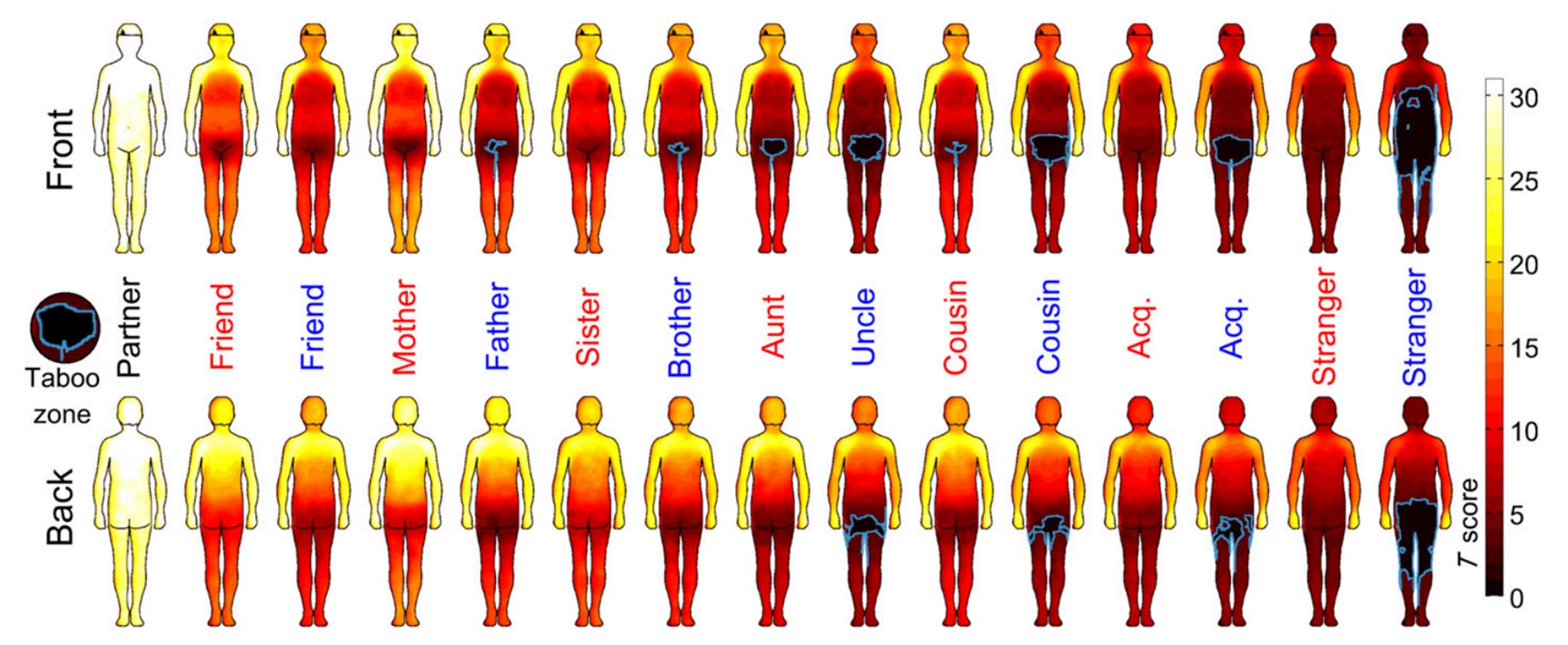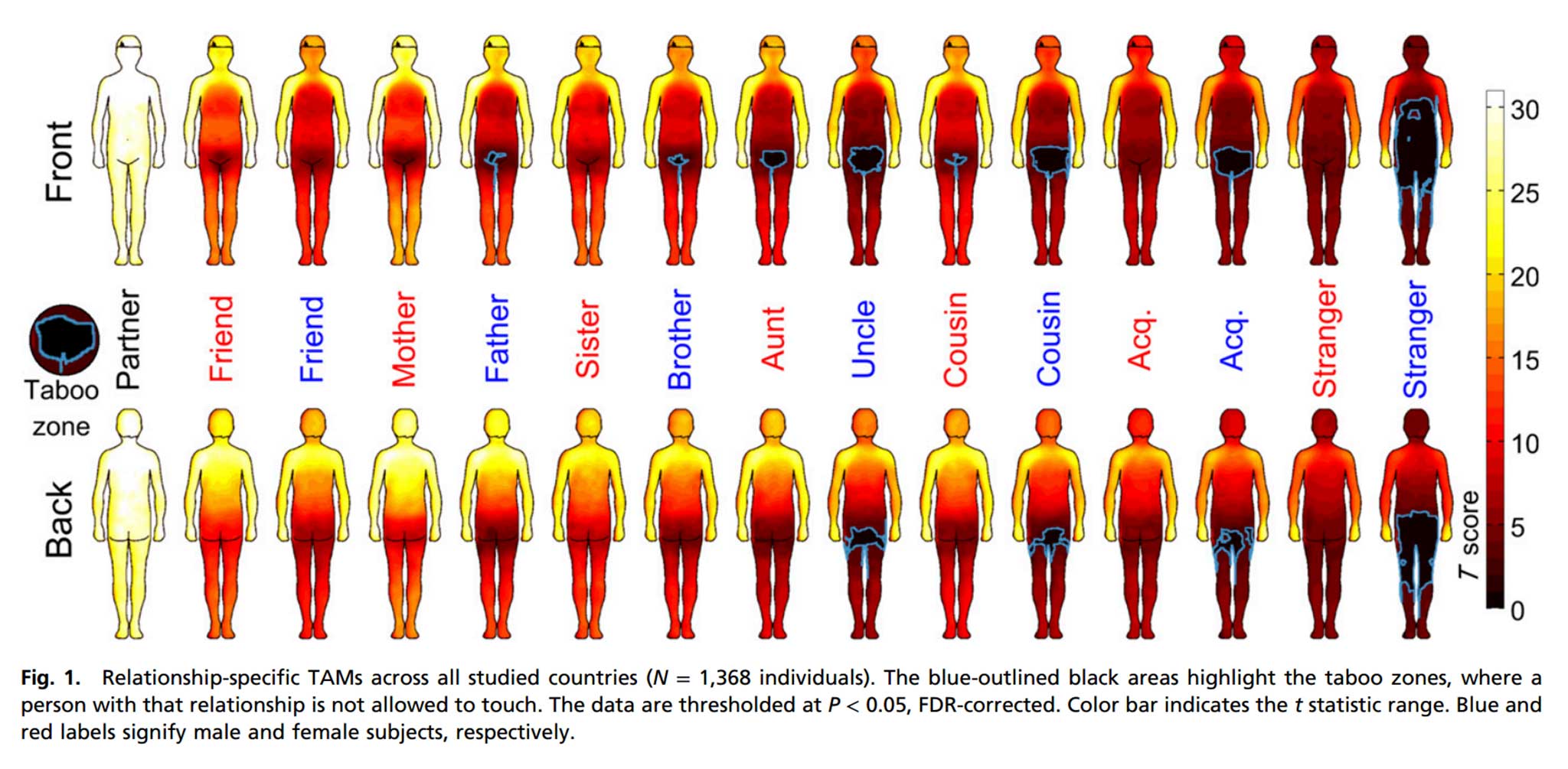'Body map' shows where men and women are comfortable being touched
Men were more comfortable being touched by strangers than women

Scientists have created a body map, showing exactly where people do and don’t like to be touched.
More than 1,300 people responded to Oxford university and Finland’s Aalto university survey that asked where they were comfortable being touched and by whom.
The results, compiled into a “body map index” and published on Monday by PNAS (Proceedings of the National Academy of Sciences in America), found men were far more comfortable with physical contact than women, with the single exception of contact with male friends.
The majority of women told researchers the only part of their body they were comfortable with male strangers touching were their hands.
In comparison, men claimed to be more at ease with a female stranger touching any part of their body, including their genitals, than a relative.

Finnish and British scientists asked participants from Britain, Finland, France, Italy and Russia to colour in outlines of the human body with where they were and were not comfortable being touched.
Overall, men were more uncomfortable than women at being touched by friends. Women were generally found to be happy with both male and female friends touching most parts of their body, while men were far more uncomfortable with similar-style physical interaction.
Aalto University researcher Julia Suvilehto suggested the results of the study (the largest of its kind ever attempted) showed touch was “an important means of maintaining social relationships.
“The greater the pleasure caused by touching a specific area of the body, the more selectively we allow others to touch it.”
“We interpret touch depending on the context of the relationship,” Oxford researcher Robin Dunbar also told The Daily Telegraph.
“We may perceive a touch in a particular place from a relative or friend as a comforting gesture, while the same touch from a partner might be more pleasurable, and from a stranger it would be entirely unwelcome.”
Join our commenting forum
Join thought-provoking conversations, follow other Independent readers and see their replies
Comments
Bookmark popover
Removed from bookmarks